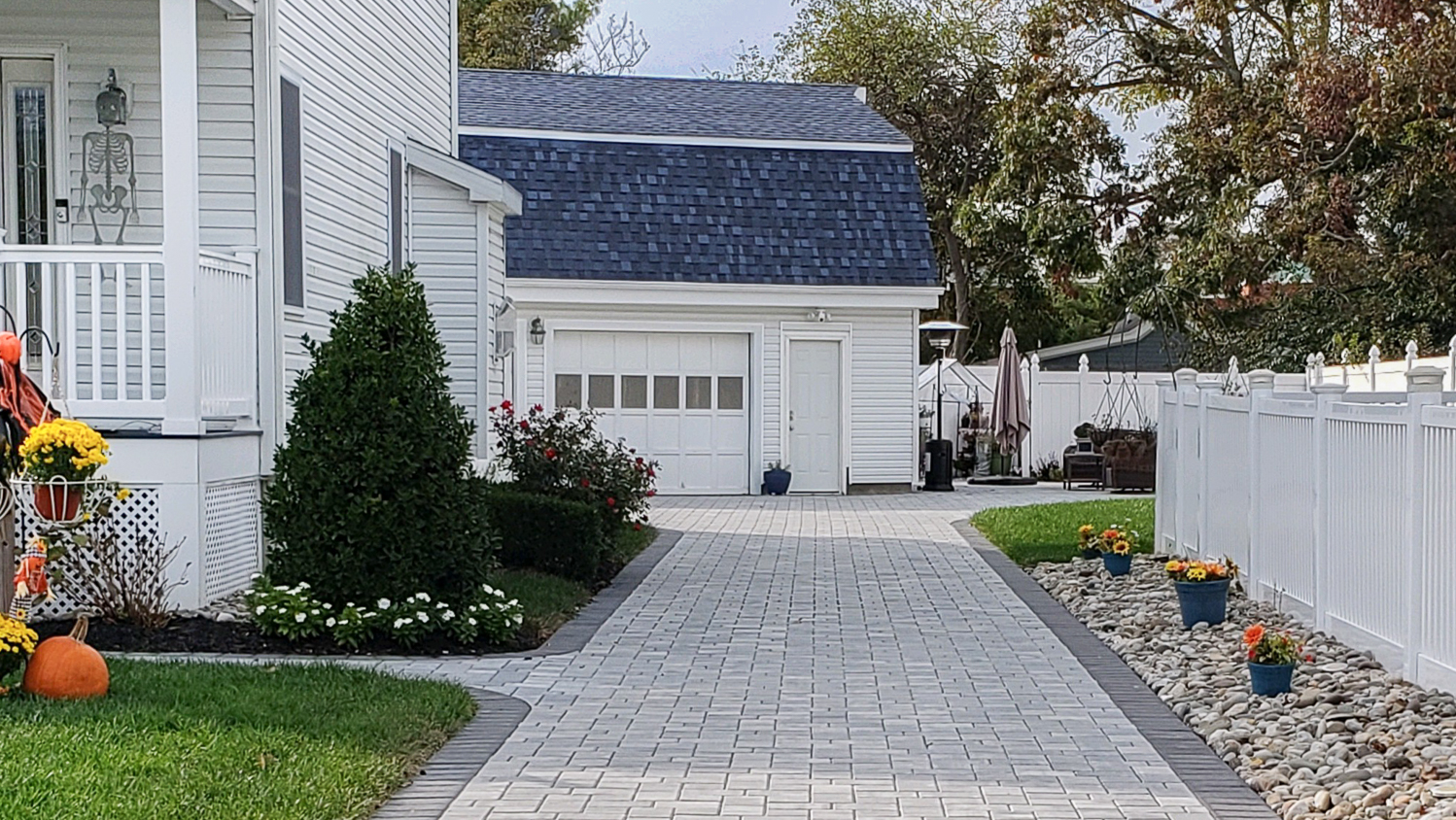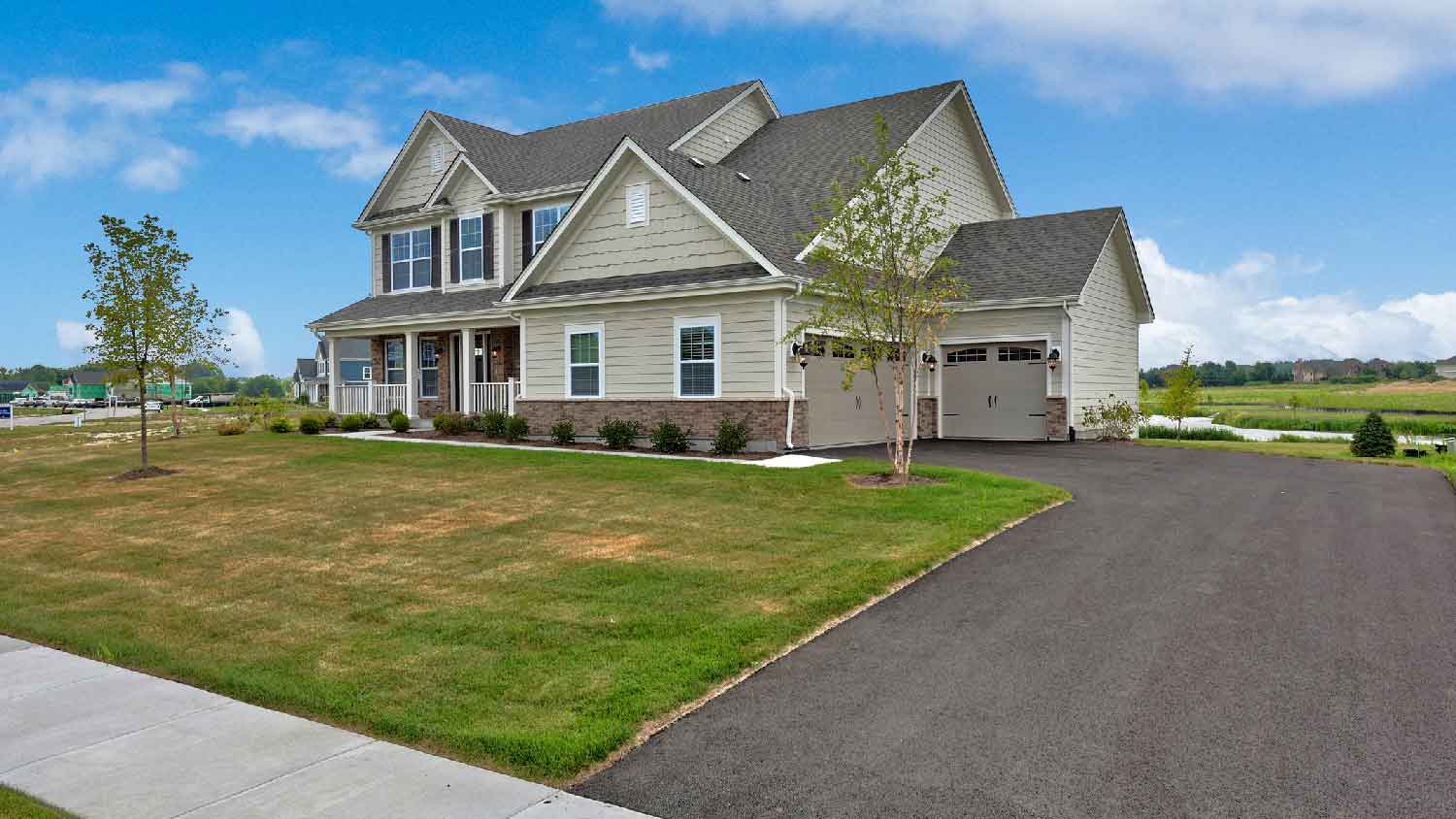
Is your driveway totaled? The price of repaving your driveway can save you from repair and resurfacing costs that are no longer worth the investment.
These options won’t drive up your bill


A driveway needs to be practical—offering superior support for cars, humans, and more—but they can be expensive to design and install. Luckily, there are a number of materials available that offer durability without breaking the bank. Depending on your budget, climate, and style, there are options such as wood chips, rubber, and even stamped concrete that can elevate your driveway with affordability in mind.

Gravel is a very inexpensive driveway material, but most homeowners shy away from it because gravel travels—the loose material can end up outside of your planned driveway area, which could be annoying to deal with. There’s a great solution, though: consider edging your gravel driveway with stones for a professional finish that will keep everything contained.
Tar-and-chip paving is also known by several other names: chip-and-seal, seal chip, macadam, or liquid asphalt-and-stone. It looks like asphalt but has a different installation process, consisting of layers of gravel, hot liquid bitumen, and loose stone placed over the surface and then compressed. While the look is less formal and durable than asphalt, tar-and-chip is much less expensive.

A full driveway paved with cobblestone can be expensive, but choosing a gravel driveway with cobblestone placed strategically throughout is a way to achieve the cobblestone look at a more affordable price. Using cobblestone sparingly can give your driveway extra durability and open up more design options than if you were using gravel only.
Wood chips are an option for the most budget-conscious—if you ask local tree-trimming companies, you might get some for free. Of course, because wood chips are made from a biodegradable material, they will degrade over time—you’ll need to plan to refresh and top off your wood chip driveway occasionally. Because they are made from discarded wood, however, they are a very eco-friendly option for your driveway and can give your home a rustic, organic style.
Similar to using cobblestones as accents, you can choose a stone permeable paver that fits your aesthetic and have them installed in a way that leaves space between them—reducing the cost of the pavers overall, and offering the added benefit of storm drainage. The spaces between the pavers are usually filled with gravel or—more simply—grass.

Concrete is a very durable and easy-to-maintain material. Stamped concrete is customizable, allowing you to imprint different colors and patterns to suit your home’s aesthetic. Overall, concrete is considered an affordable material, but it will require the help of a local driveway professional to install, which can add to the overall cost.
Asphalt is even less expensive than concrete. While it also comes in stamped or colored varieties, these are more costly than your standard black. Asphalt will need to be sealed every three to five years, so this added task should be considered in your final decision. In addition, note that asphalt can become sticky or tacky when exposed to very hot weather.
Rubber, with its natural elasticity, can be an excellent choice for a driveway as it won’t crack under heavy loads or impact. In addition, it requires very little maintenance and performs well in cold climates. That said, like asphalt, it has a tendency to soften or become tacky when exposed to high temperatures.
From average costs to expert advice, get all the answers you need to get your job done.

Is your driveway totaled? The price of repaving your driveway can save you from repair and resurfacing costs that are no longer worth the investment.

Use our guide to calculate the cost to seal an asphalt driveway. Prices vary based on the type of sealant and the size of the driveway.

Discover the average paver driveway cost, including price ranges, key cost factors, and tips to help you budget for your driveway project.

Learn how to keep your asphalt driveway protected longer as we compare the performance of water-based vs. oil-based sealer for a driveway.

Learn the best time of year to repave or seal your driveway to keep it in optimal condition and protect it against extreme weather and regular wear and tear.

Our eight gravel driveway maintenance tips, including raking and spraying, make it easy to keep your gravel driveway looking good and functioning properly.